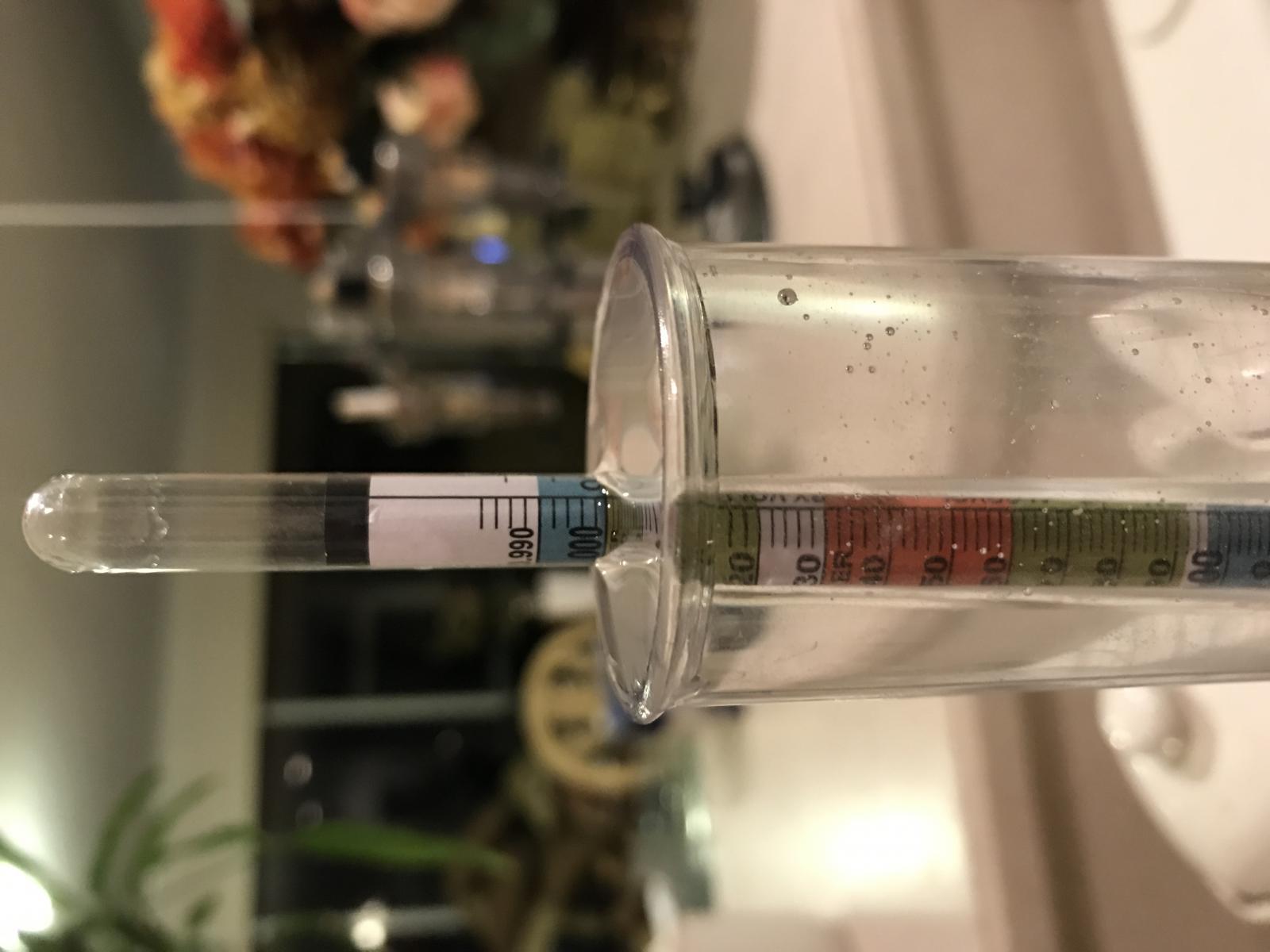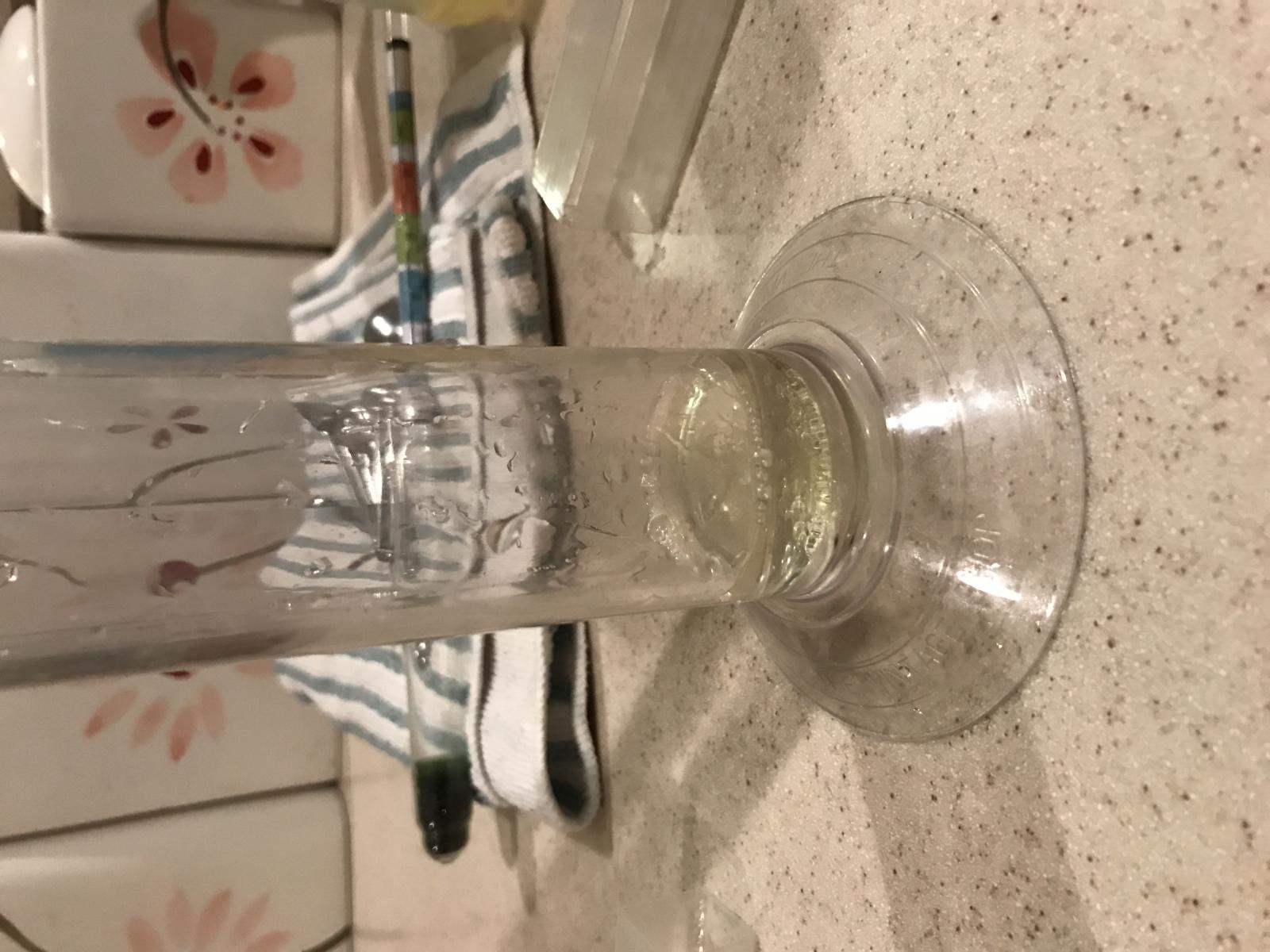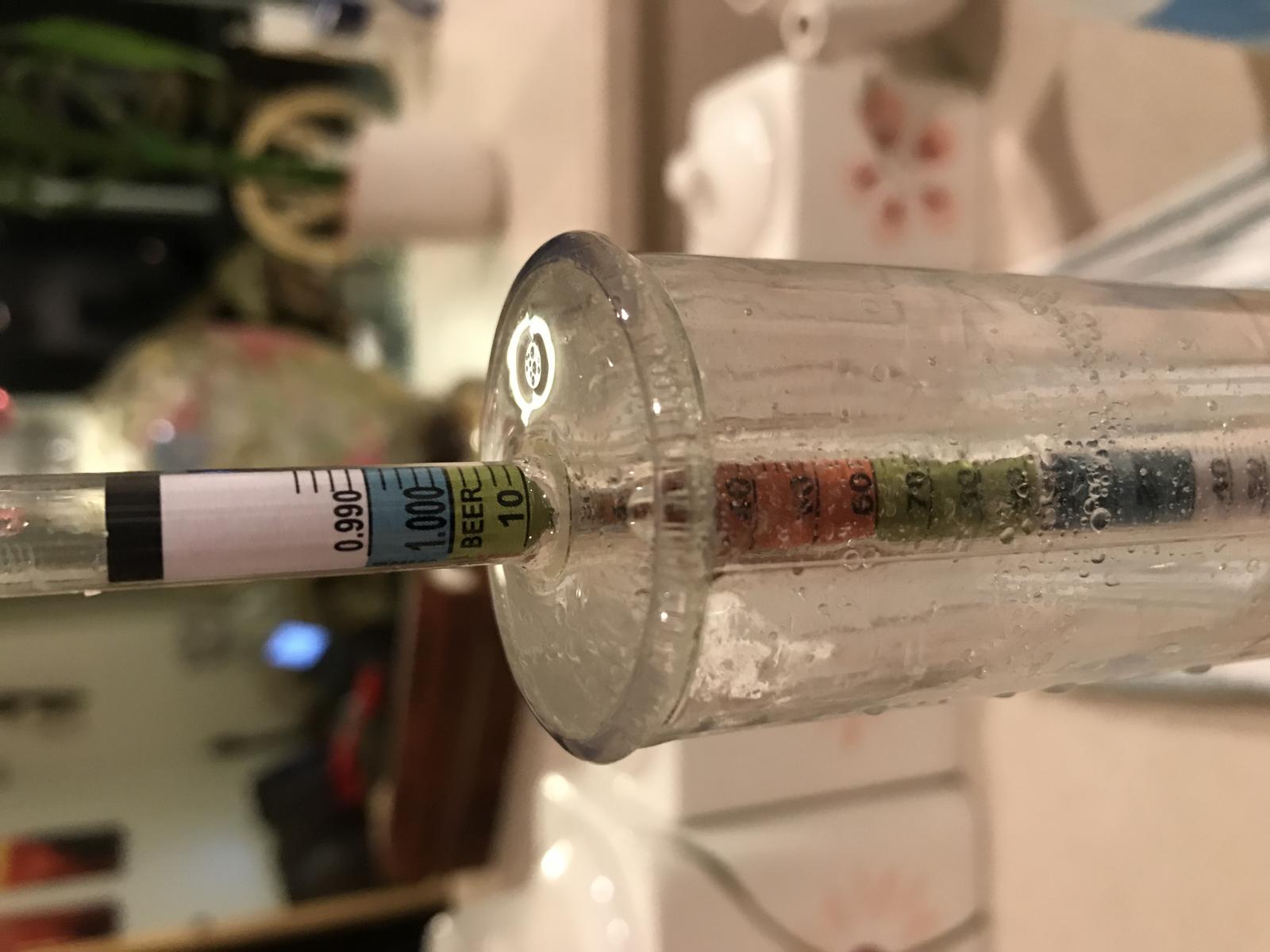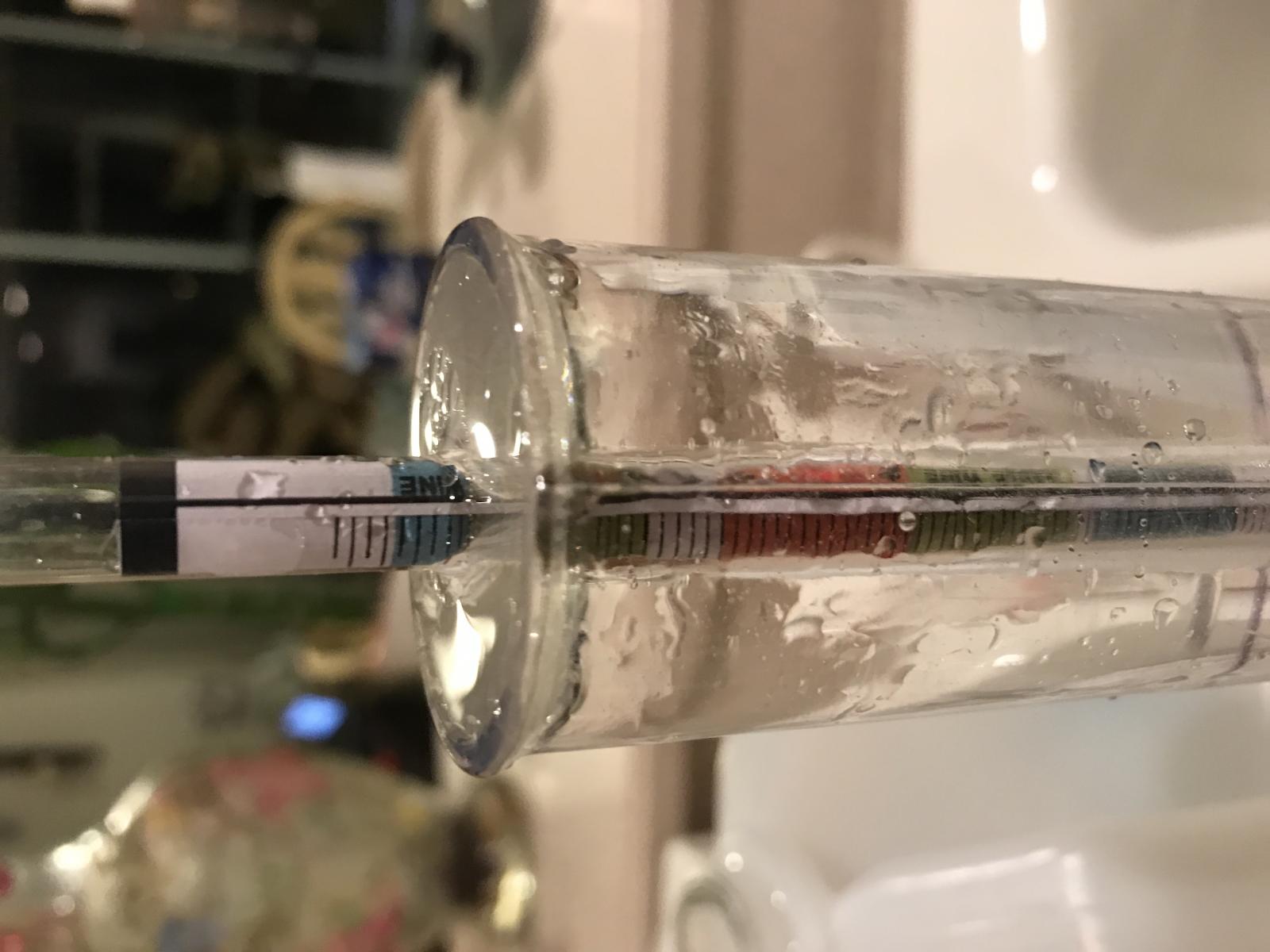Since 2.5 mL of oil did not have an "affect", I would suspect that the amount of oil that is drawn into our tube to float the hydrometer in is negligible and will not "affect" the hydrometer reading.
WRT to your experimental model. Oils will have an effect on the reading.
Just do a little thought experiment and let's assume a calibration temperature of x for the hydrometer.
Place a 1ft long hydrometer of suitably wide range (e.g. 0.9-1.1) in a half filled swimming pool of distilled water at x°F 1ft deep. It reads 1.000 as it floats on the surface
Now add 1 ft worth of vegetable oil (assume oil SG 0.92) to the pool
Allow time for everything to stratify
What does the hydrometer measure as it sits on the surface of 1ft of oil at x°F atop 1 ft of water?
0.92 is the obvious answer
If a smaller amount of oil is added (lets say 2cm deep) The hydrometer will sit in mostly water but also some oil.
It will read SG <1.000
As more oil is added to the pool a greater volume of the hydrometer is immersed in oil and less volume in water.
The upthrust force on the hydrometer must remain constant (it is always equal to the weight of the hydrometer) and as oil density is lower than water the hydrometer sinks lower and lower till the extreme example as outlined above is met.
Archimedes Principal is the simple law in play here.
The upthrust on a body partially or completely immersed in a liquid is equal to the weight of fluid displaced by that object.
With hop oils dispersed in the beer (i.e. not floating on the surface but dispersed throughout) the SG will change.
The oils are soluble in alcohol and have a lower density than beer. Adding hop oils will lower the density (SG reduction).
The effect is negligible however given the volume of beer v volume of hop oils.





































![Craft A Brew - Safale S-04 Dry Yeast - Fermentis - English Ale Dry Yeast - For English and American Ales and Hard Apple Ciders - Ingredients for Home Brewing - Beer Making Supplies - [1 Pack]](https://m.media-amazon.com/images/I/41fVGNh6JfL._SL500_.jpg)
























